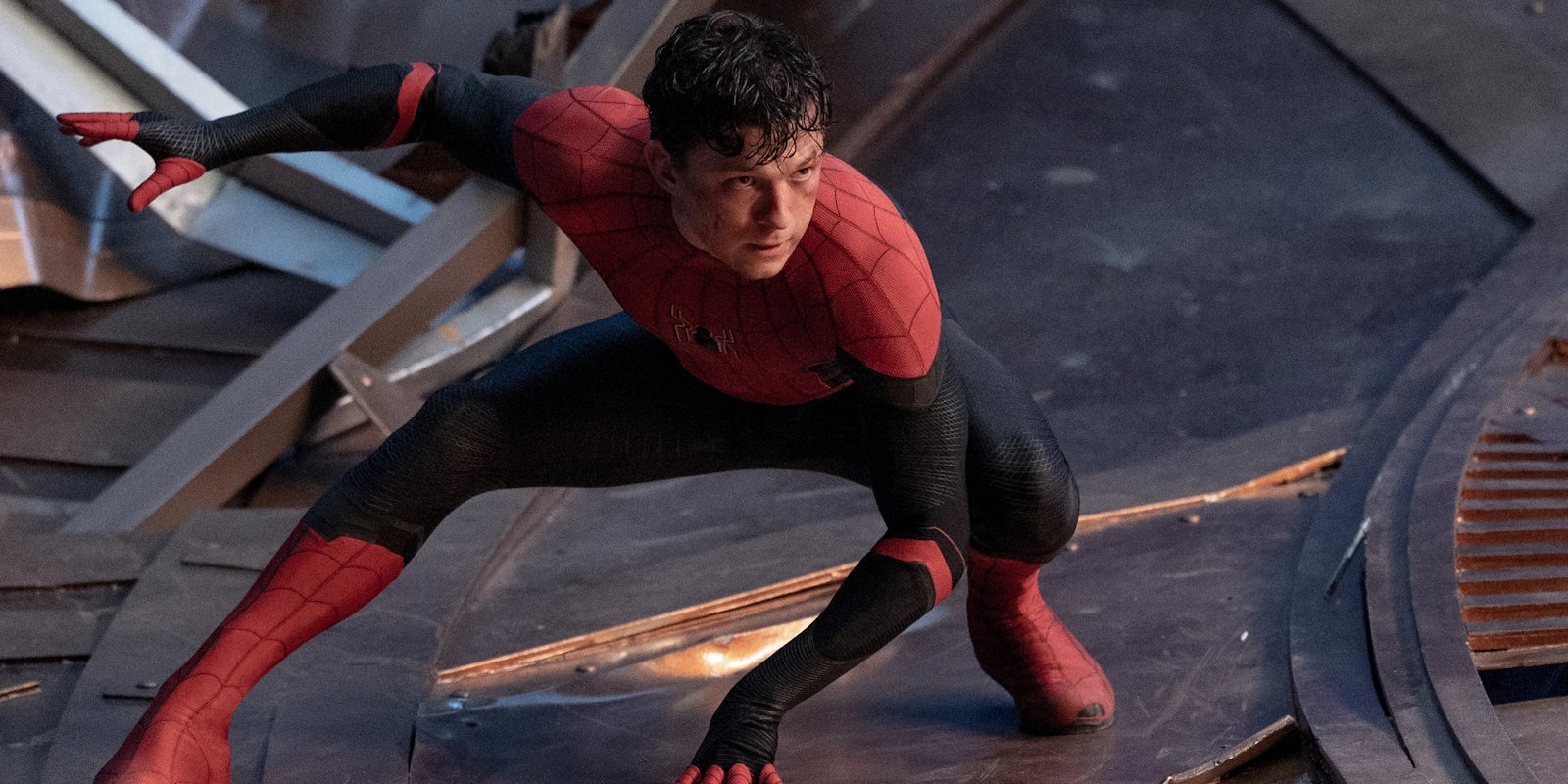This post includes spoilers for Spider-Man: No Way Home.
The MCU’s version of Spider-Man has never been entirely convincing as an underdog.
While Tom Holland’s performance is wildly popular, the MCU’s Spidey worldbuilding is more divisive. Characterizing Peter as a naive kid brother to the adult Avengers, the MCU paired him with a series of babysitters and mentors. More troublingly, this franchise downplays his working-class roots, emphasizing his idolization of billionaire Tony Stark. Captain America: Civil War grandfathered him in to Marvel’s military-industrial complex, arming the teenage Peter Parker with drones and a Stark Industries AI. This rubbed many fans the wrong way, including actor Andrew Garfield, who said that his version of Peter would be “turned off by the excess” of Tony’s antics.
Tony Stark is sometimes positioned as Peter’s mentor in the comics, and the Iron Spider costume has been around since 2006. There are also some storylines where Peter becomes a tech CEO himself. However his teen years typically define Spidey as a street-level hero; an underdog with fundamentally different values to a wealthy, powerful and morally ambiguous character like Tony. This made Tom Holland’s Spidey somewhat controversial among comics fans, especially in the context of other changes like Marisa Tomei’s young Aunt May.
But that all changed with the end of No Way Home, which hits the reset button on Peter Parker’s life.
The film concludes with two world-shaking events: The death of Aunt May, and a magic spell erasing everyone’s memory of Peter being Spider-Man. Peter is now completely alone, losing his connection to the Avengers—and more importantly, to his girlfriend and best friend. With no memory of their relationship with Peter, Ned and MJ leave New York to enroll at MIT. No Way Home ends with Peter moving into a cheap bedsit apartment, similar to the one Tobey Maguire rented in Spider-Man 2.
No Way Home’s finale is a soft reboot for the franchise, setting a very different tone for Tom Holland’s next movie. The training wheels are off. The safety net is gone. Peter Parker has dropped several rungs on the economic ladder, abandoning the glitzy power fantasies of the Iron Man era.
After Avengers: Endgame, the MCU entered a transitional stage. The franchise is moving on from the militaristic themes of SHIELD, Iron Man, and Captain America, shifting into a more fantastical realm: Doctor Strange, the Eternals, Shang-Chi, and multiverse crossovers. From a marketing perspective, Spidey is an A-list legacy hero, probably the most lucrative character in the current Avengers lineup. But within the MCU narrative, he’s finally a true underdog—an orphaned high school grad with no money and no backup, facing a kind of precarity we just haven’t seen elsewhere in the franchise. A very positive sign for the MCU’s next phase, repositioning Peter as the Friendly Neighborhood Spider-Man rather than Tony Stark’s protégé.


